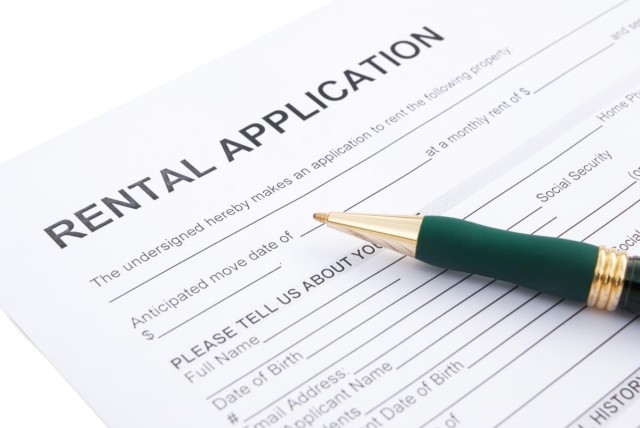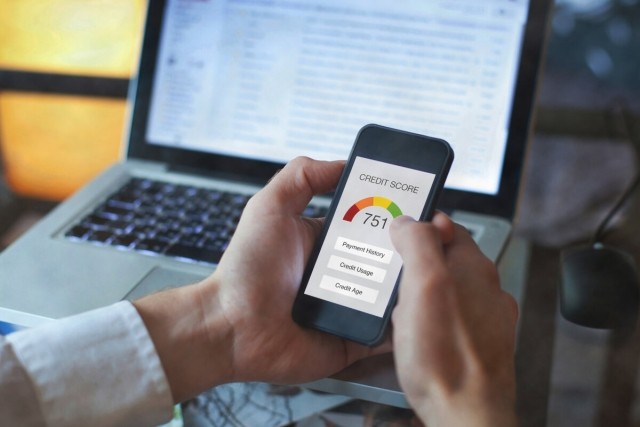Now that you’re on your own with a full-time job (mom must be proud!), you just found “the one” apartment and are ready to take things to the next level. The landlord informs you in her office that she will have to run a credit check to make sure you qualify for it. Okay, fine. It’s something you slightly remember learning about in your personal finance class anyway.
In college you probably lived off of high-sodium instant noodles and mac and cheese. If you paid for these items with a credit card in your name, you’ve already built up some credit and are probably doing better than most. Paying off noodles is a fast way to get credit – and if you have no credit, get a credit card in your name and start by paying small balances off at a time to get you going.
As you sit and wait for the landlord to return, you begin to wonder what exactly she might be looking for in the report. You know credit is there, but how much? And is there something on it that might hold you back from getting the apartment? Credit checks provide landlords a look into a tenant’s previous rental history – which can be eye-opening for the both of you. So what exactly do they see and look for in a credit check? Here’s what:
Tenant Qualifications
It’s nothing personal but, because an apartment is their investment, a landlord will run a credit check (also called a “credit report”) to make sure your qualifications are a good fit for the rental. Meaning, you are able to afford it and can pay the rent on time. Landlords look for consistency in rent payments in a tenant’s credit report – and to see if any money is owed to a prior landlord or apartment manager.
When your credit report is pulled for the apartment, it’s considered a soft pull and will not drop your FICO score like a hard pull does. Why? It’s more like a background check. Hard pulls occur when a lender is making a lending decision based on your credit – and can drop a score anywhere from 5-10 points. Ouch.
Background Information
A credit report contains insightful knowledge into a tenant’s standing on a variety of categories, including public records, employment, and trade lines. The landlord will review the full report, and then you will move forward with the leasing process once you’ve been approved. Here’s what your credit check will show:
- Addresses
Whatever residence you’ve had mail delivered to (ex. childhood home or closet-sized dorm) will be present on your credit report. Any unrecognizable addresses should be disputed.
2. Public Records
Bankruptcies, lawsuits, and evictions appear on credit reports because they’ve gone through the court system. Hope is not lost if you have experienced these. Evictions and lawsuits are removed from reports after 7 years while bankruptcies take 10 years.
3. FICO Score
Since your FICO score is what a lender used to assess your student loan, it’s also something a landlord will look at to approve you for an apartment. The score will increase as on-time payments are processed. As for what scores landlords want to see? A Fair to Good score should get you the keys to the home.
4. Employment Information
Your employment history will be on file if you’ve provided said information to a loan or credit card issuer in the past. It’s not exactly a history of employment – but if long-term employment describes you, definitely talk about it with the landlord as it shows you value consistency.
5. Open and Settled Loans
Open and settled (also called “closed”) loan accounts will appear on the report. Open accounts in good standing – like your student loan that has probably not been paid off yet – will continue to show for 10 years after the account has closed. Settled accounts will remain on a report for seven years from the day it was reported as “settled.”
The details in your credit report won’t make-or-break your end goal. If your credit score isn’t necessarily where it needs to be, or maybe you’ve been trying to rectify a legal situation for some time, try these tips to better your chances.
Personal Identification Information
Before a landlord can begin to check your credit, she will need some personal identifying information from you to proceed:
- Full legal name
- Current address
- Social Security Number (SSN) or Individual Taxpayer Identification Number (ITIN)
If you go by a nickname, there’s a good chance your name will appear on the credit report as long as you have used that name to apply for credit cards or loans. Your legal name is ideal to use, but a nickname can work if that’s what you go by and have used it on financial applications in the past.
When processing a credit check, it’s likely you may be the one paying for it. But in most cases, this will already be built-in to the apartment’s “application fee.” Have you been interested in multiple apartments? Some states allow tenants to provide their own printed copy of a credit report in order to save on the application fee. However, some states allow the landlord to reject personal copies. You might be asked to provide your gross income as well, because the last thing a landlord wants is for their residents to be spending more than what they can realistically afford on rent and utilities.
Credit checks are nothing to stress over – it’s just part of the adulting experience. If you ever decide to open up your own business, or need to refinance a loan, you’ll be going through credit checks again. A landlord running a credit check is part of the apartment lease process. Lucky for you, you had some credit going into your first post-college rental!






